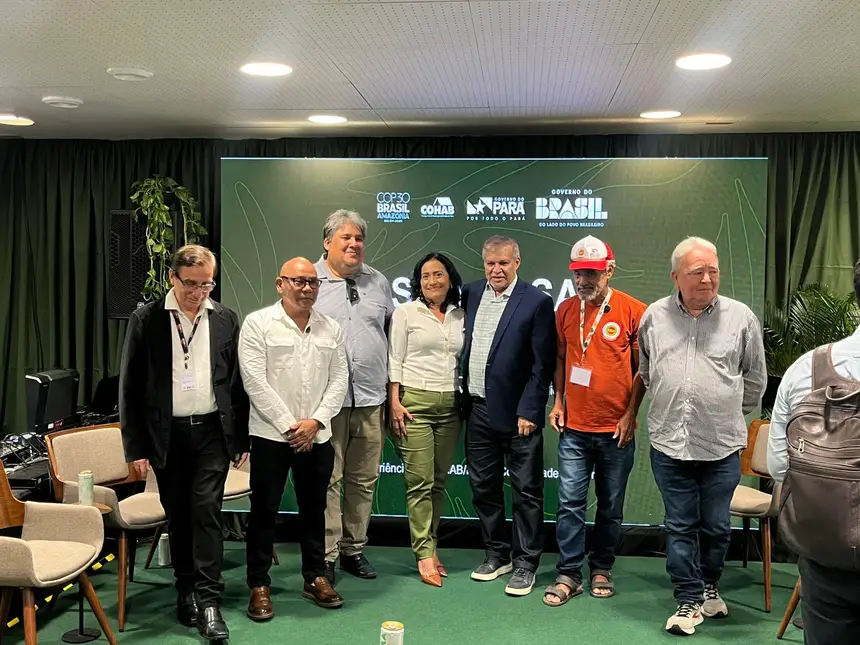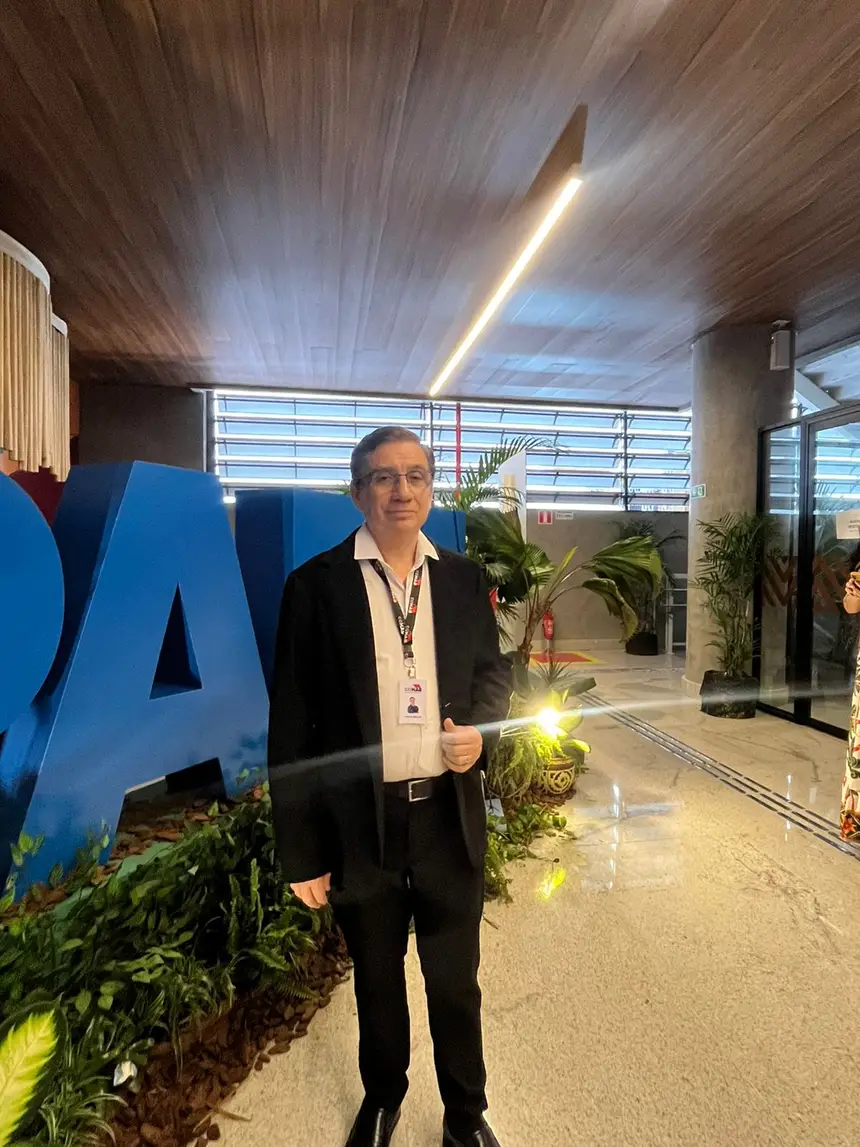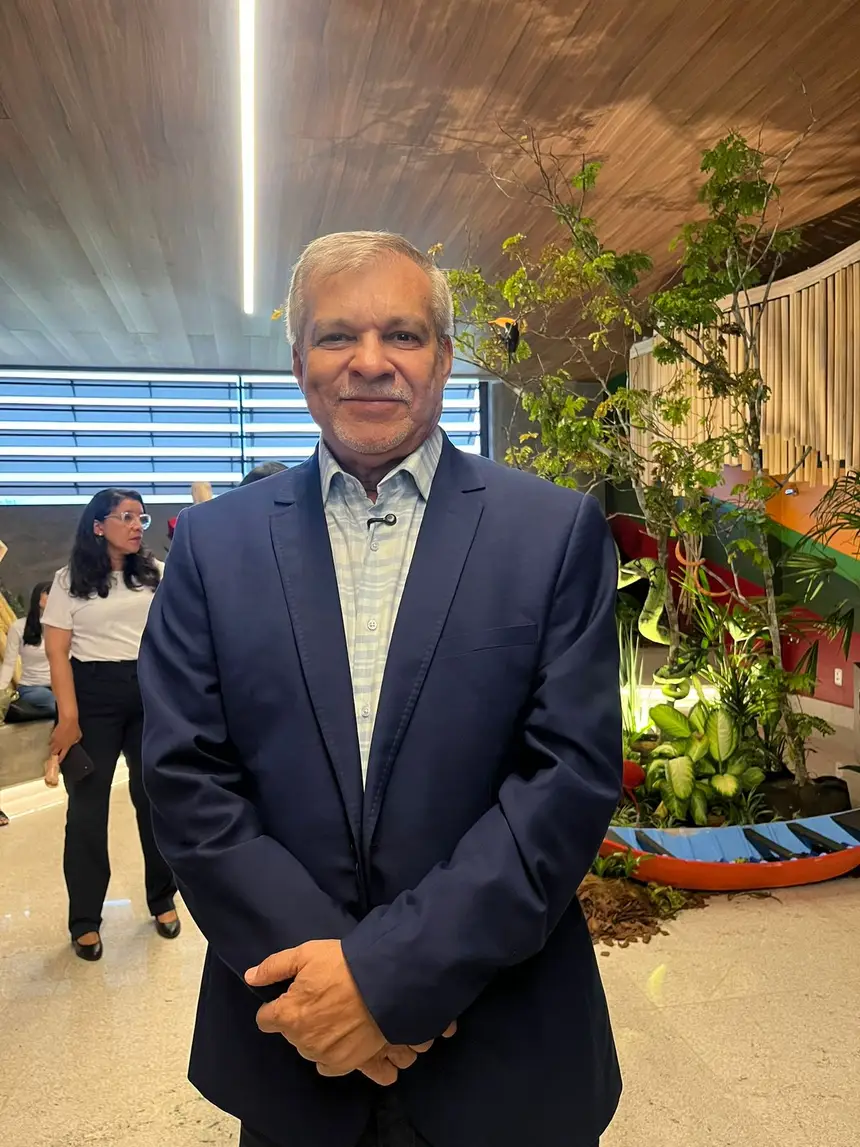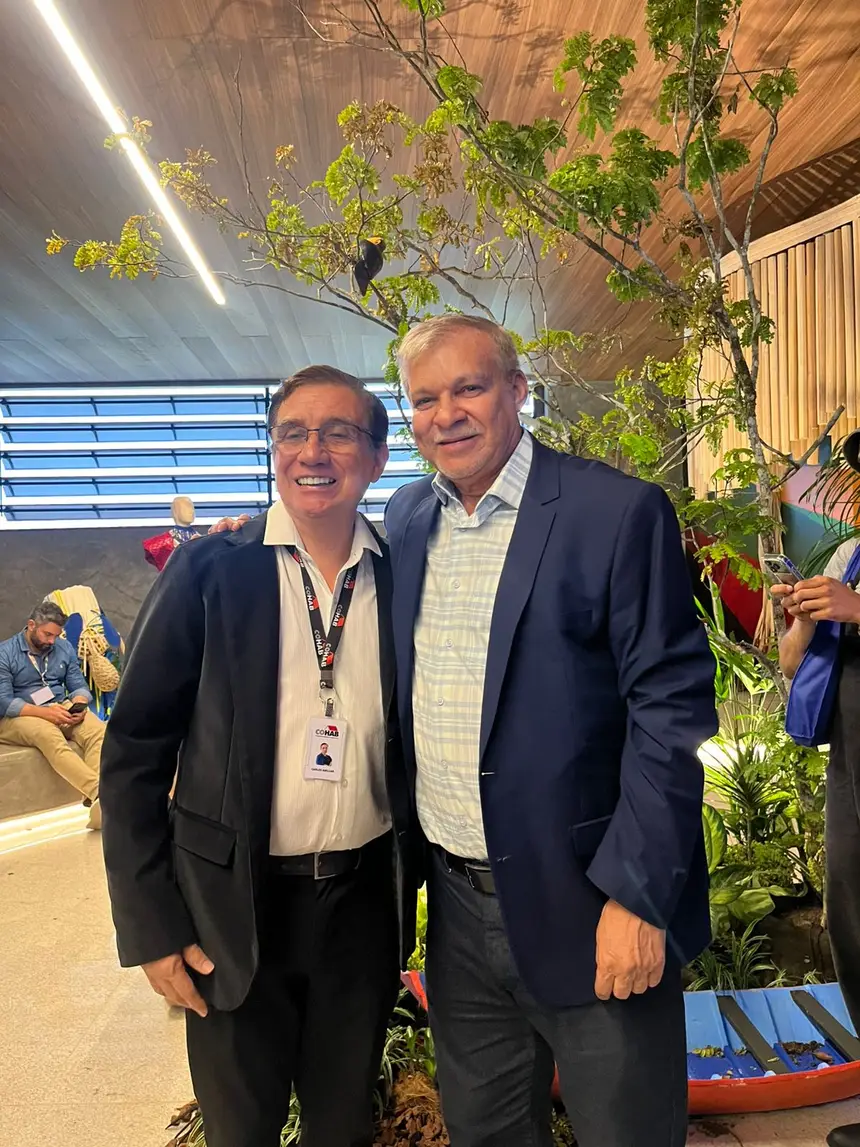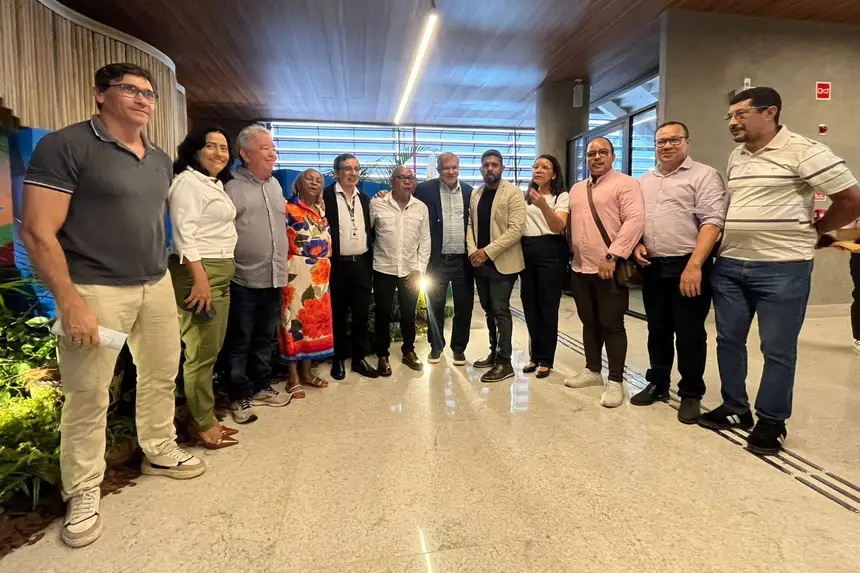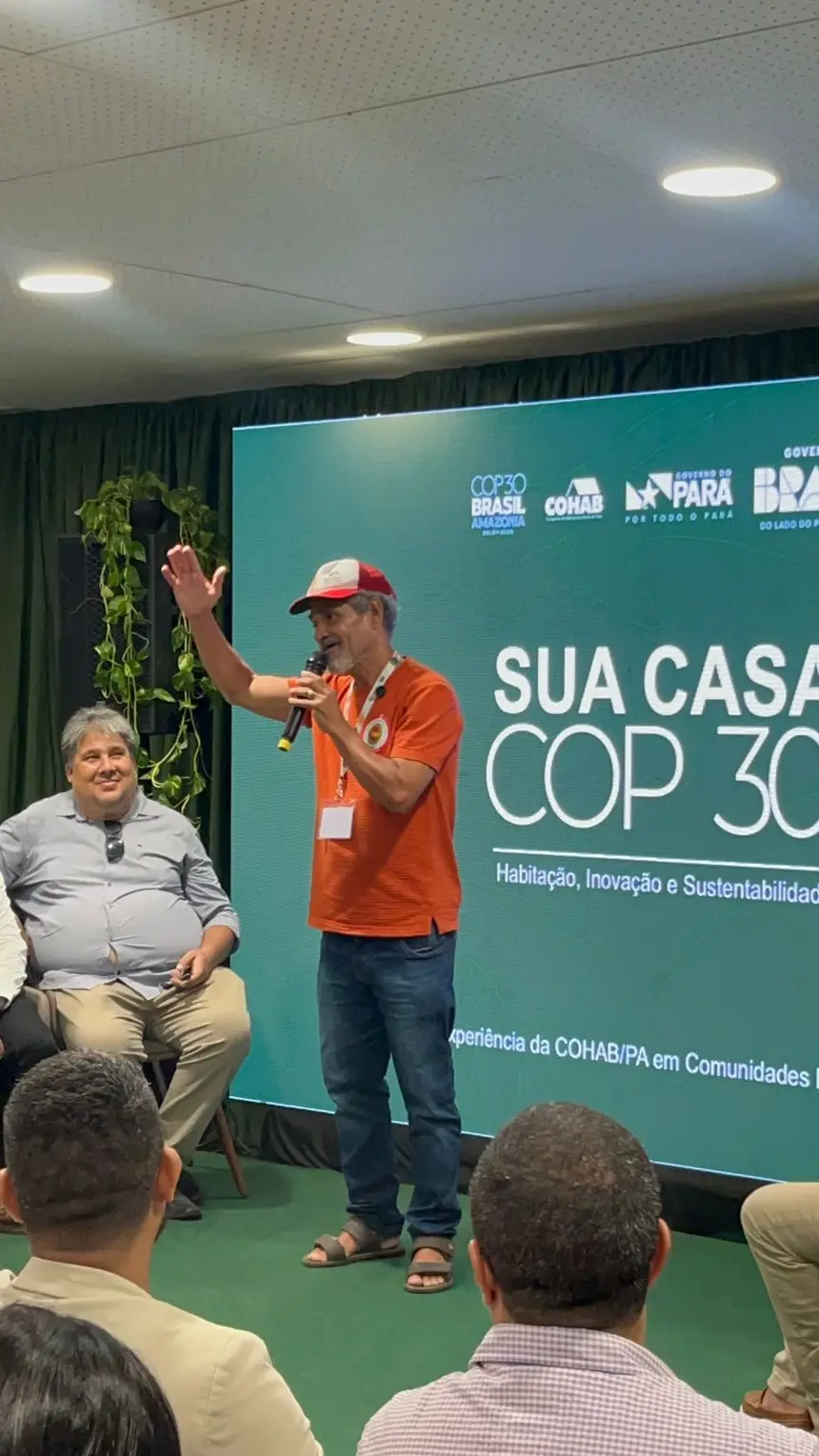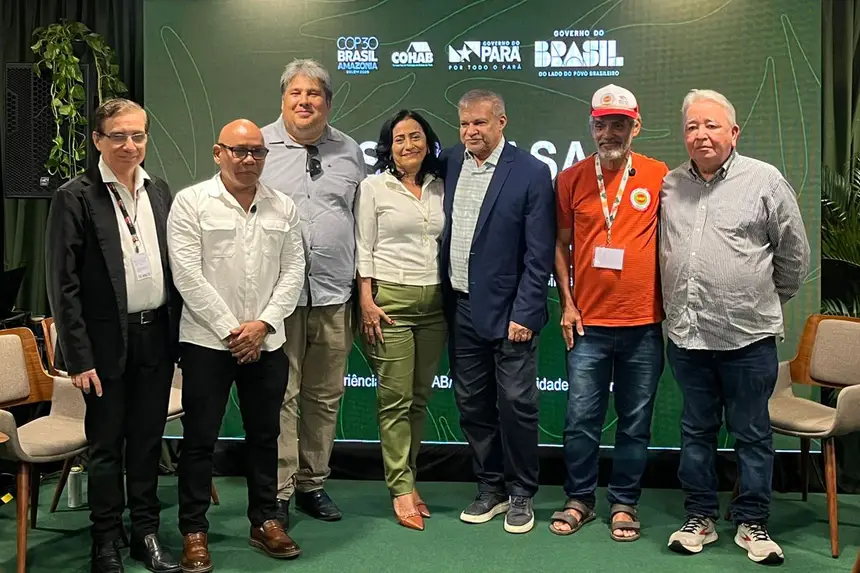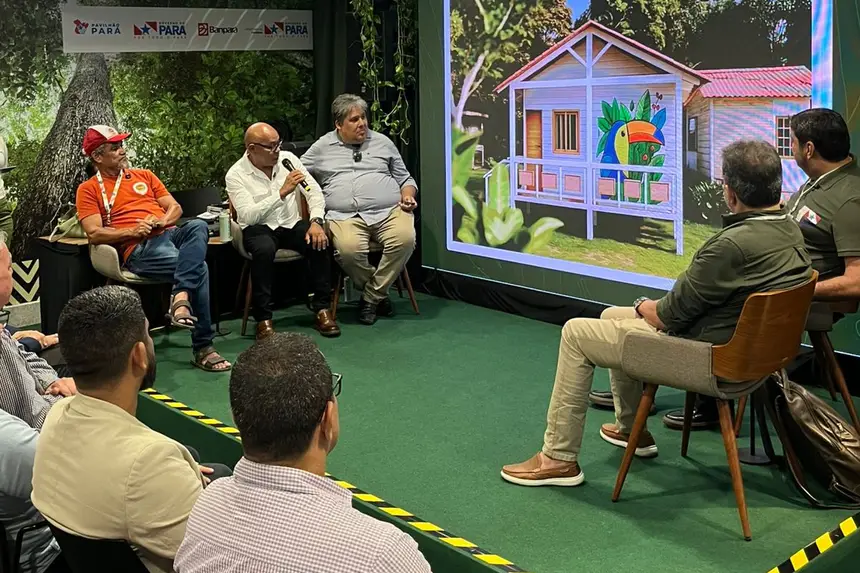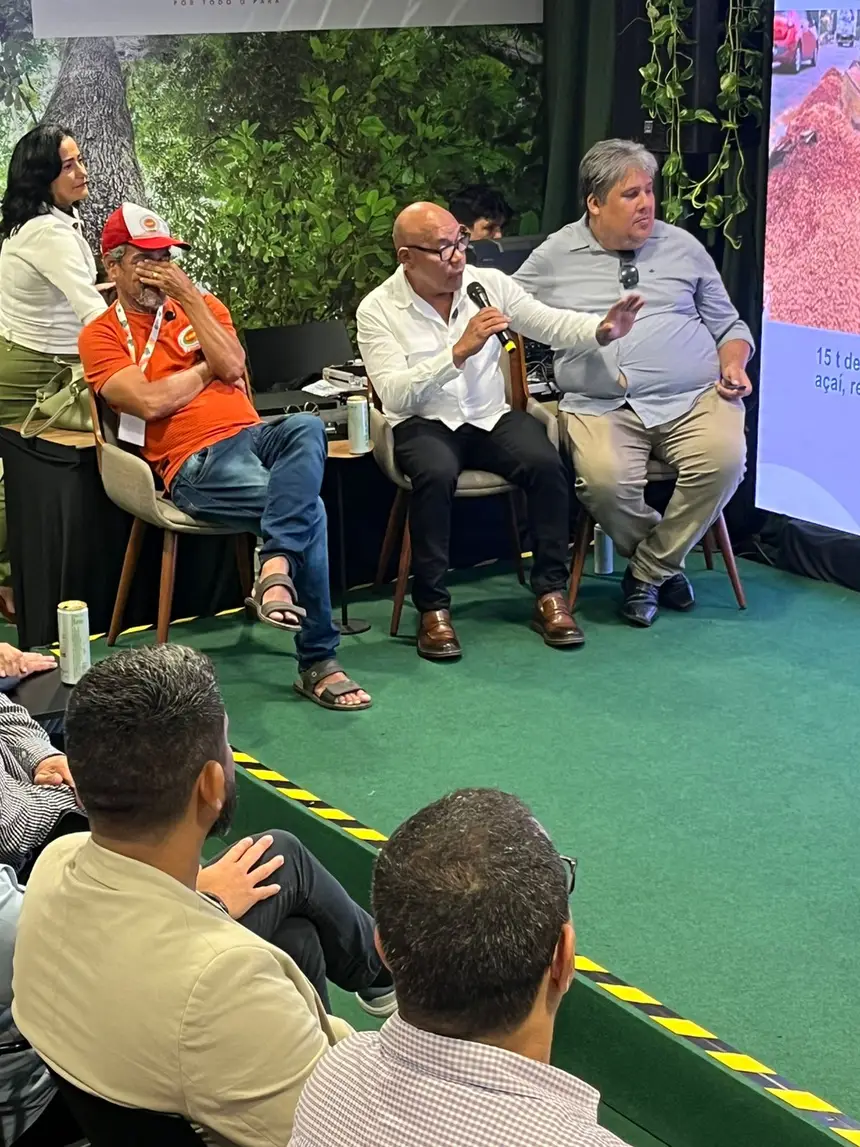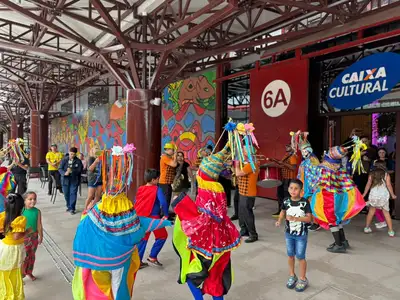Government of Pará's project for ecological houses made with acai seed bricks presented at COP 30
Initiative presented in the Greenzone integrates sustainability, innovation, and social inclusion, with 45 sustainable homes built in partnership with the Federal Government
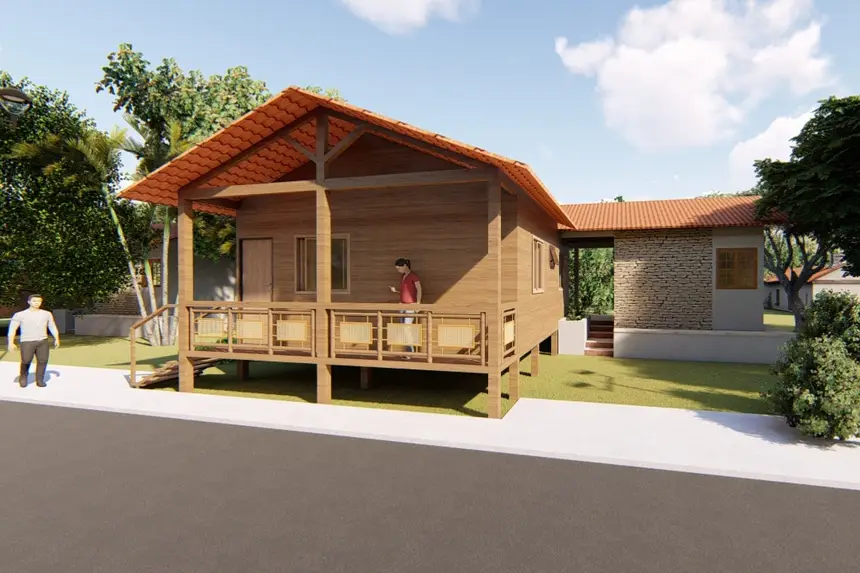
The Government of Pará presented this Wednesday (19), in the Green Zone of the 30th United Nations Conference on Climate Change (COP30), in Belém, the project "Your Sustainable House COP30", which is building ecological homes in the islands region of the capital of Pará. The action is coordinated by the Housing Company of Pará (Cohab) and features the use of over 150,000 ecological bricks made from acai seeds, combining social development, technological innovation, and environmental preservation.
The project enables 45 sustainable homes, some in the traditional stilts model, typical of the riverside region, and others with ecological masonry, incorporating solutions such as rainwater harvesting, solar energy, vertical gardens, and waste treatment through biodigesters. The initiative is the result of a partnership between the State Government, through Cohab, and the Federal Government, executed in conjunction with the Mixed Cooperative of the Island of Combu (Coopmic/CMP).
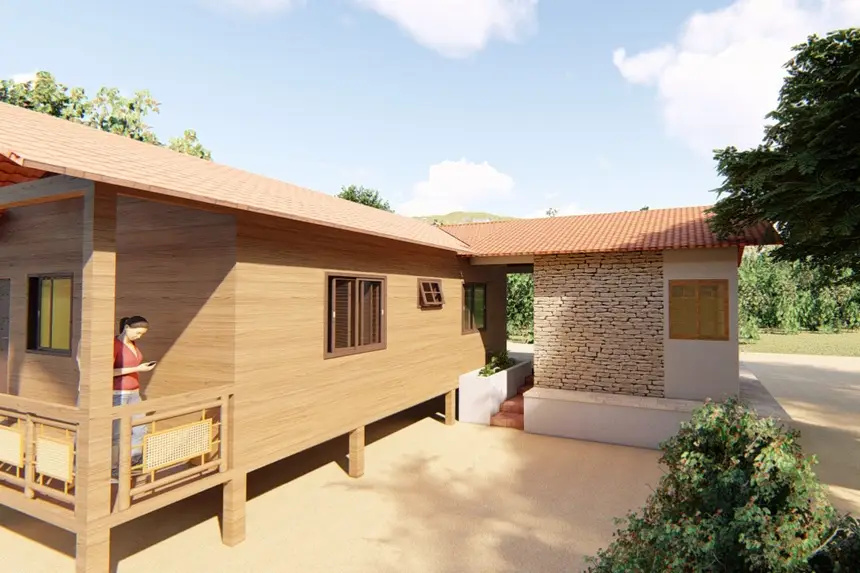
"With this initiative, we are ensuring that riverside dwellers can have dignified housing integrated with the environment, conserving natural resources and improving the quality of life for those who need it most," said the president of Cohab, Manoel Pioneiro.
Sustainability applied to housing
The houses built with ecological acai seed bricks represent a sustainable alternative that reduces environmental impacts. The technology, created by civil engineer Marco Oliveira, reuses acai waste, such as seeds, fibers, and ashes, without the need for burning, saving resources and promoting thermal comfort and energy efficiency.
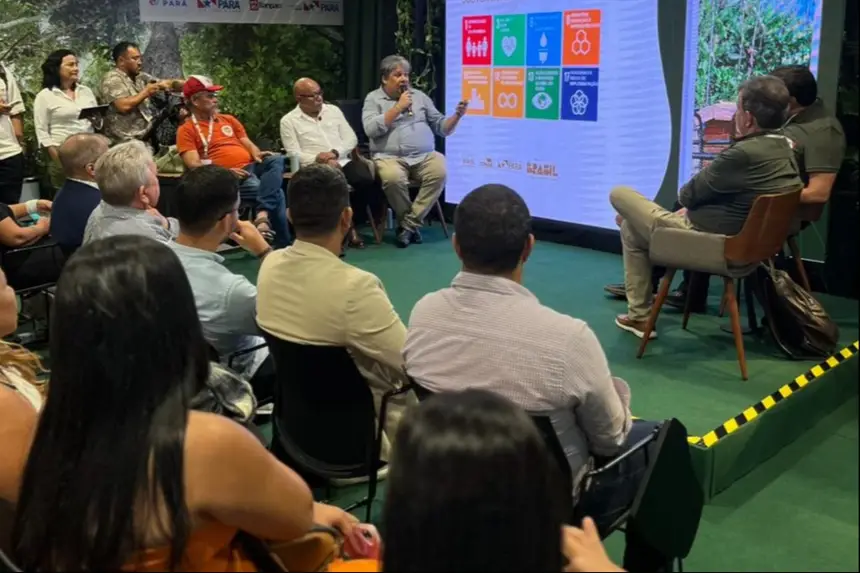
According to Sérgio Soares, civil engineer at Cohab, the use of ecological bricks reduces construction time by up to 30% and generates savings of up to 40% in materials. "The brick also provides thermal and acoustic insulation, captures carbon dioxide, and helps prevent environmental problems such as flooding and soil erosion," he explained.
The technology also ensures savings of up to 90% in water use, 80% in cement, and 50% in iron, in addition to eliminating the use of wood, reducing solid waste generation on site.
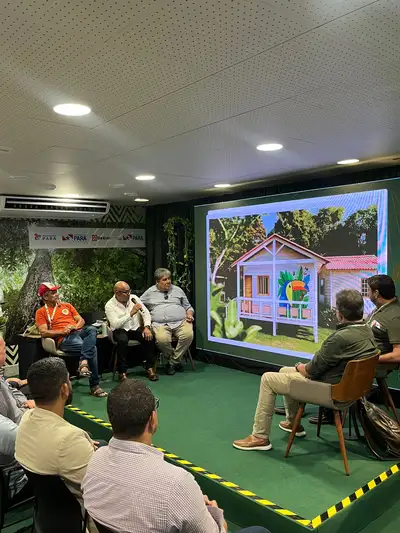
Innovation with Amazonian identity
For the special director of Housing at Cohab, Carlos Amílcar, the project represents a milestone in the construction of social housing focused on sustainability in the Amazon.
"We aligned the project with COP guidelines, prioritizing sustainability, but without giving up social inclusion and valuing regional identity," he emphasized.
The architectural design of the stilts follows the standard of the Minha Casa, Minha Vida program, with two bedrooms, a living room, a kitchen, and solutions for rainwater harvesting and treatment, as well as solar energy. These housing units, unprecedented in Brazil according to the organizers, are being built in a modular format with the ecological annex made possible by the State Government.
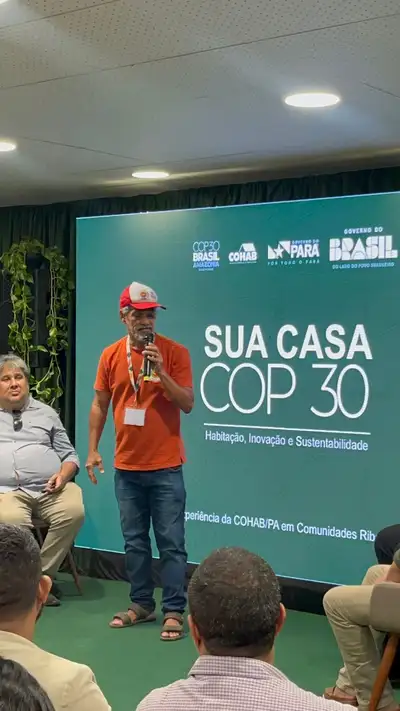
"These are the first stilt houses of Minha Casa, Minha Vida that receive, with the support of the Government of Pará, an annex made of ecological bricks, with sustainable solutions for sewage, energy, and drinking water, a historic challenge in the islands region," highlighted Paulo Cohen from the National Executive of Popular Movements.
Social inclusion and technical assistance
The families benefited receive free technical assistance guaranteed by Federal Law No. 11.888/2008, with support from architects, engineers, and social workers throughout all stages of the construction process and housing improvements.
For Adriele Mota, a resident of the Island of Combu, the delivery of the new home represents the realization of a dream. "I have one child and I am pregnant with another, who will be born in his house. I am very happy and grateful to have my house," she celebrated.
The pilot project is underway in the islands region of Belém, but there are expectations for expansion to other municipalities in Pará, promoting dignified housing, respect for the environment, and strengthening traditional communities as active agents of preservation.


